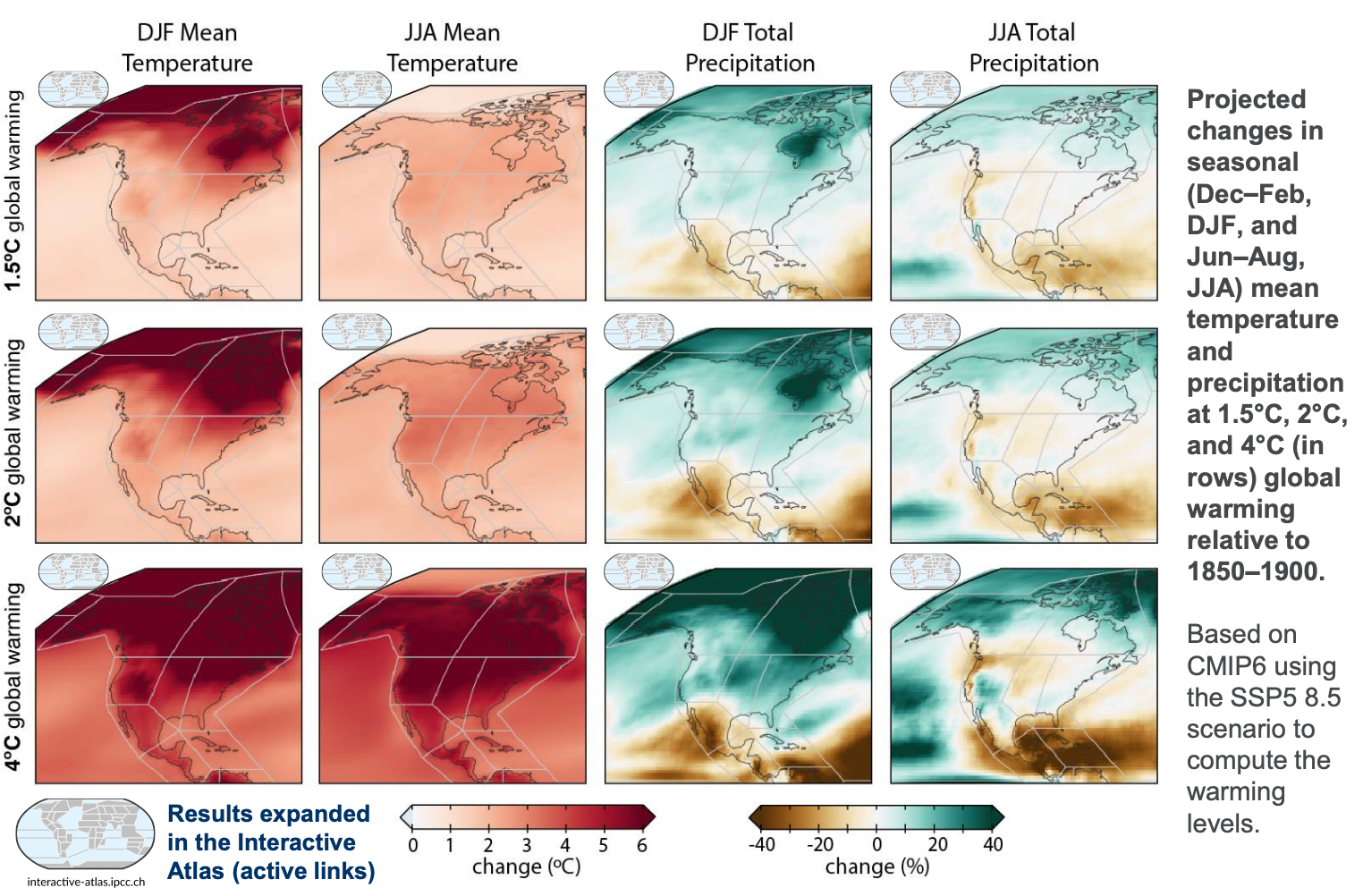Near total coastal flooding, more fires and ‘hot droughts’: Here’s what the IPCC report projects for US
In North America, sea level rise will impact nearly all coastlines outside of Alaska and Hudson Bay
Coastal flooding almost everywhere and the increased threat of extreme events happening in tandem: these are some of the regional predictions made for North America in the latest assessment from the UN’s Intergovernmental Panel on Climate Change (IPCC).
For the first time, the first chapter of the three-part report includes 11 regional fact sheets including on Africa, Europe, and North and Central America, and a digital atlas to provide even more localised insights.
There are breakdowns of how polar regions, mountains, oceans and cities will be affected at different temperatures.
The report looks at how regions will change at 1.5 degrees Celsius - the Paris Agreement limit which is at risk of slipping out of reach - and also at more dangerous levels of heating, 2C and 4C.
In the US, sea level rise will impact nearly all coastlines outside of Alaska and Hudson Bay, the report found. Sea level rise will increase coastal flooding and erosion.
There will also be an increase in ocean acidification along coasts and the intensity and duration of marine heatwaves which have devastating impacts on species, and can cause the increase of environmental hazards like the toxic algal blooms currently impacting Florida.

In northern regions of North America encompassing Canada, Alaska and the top of northern US states, temperature increases are projected to be very large compared to the global average, particularly in the winter.
In the Rocky Mountains, lakes are likely to grow in size as glaciers continue to melt. There will be strong declines in snow cover - with the exception of the northern Arctic.
Central and western North America, where recent wildfire seasons have been unprecedented, there will be more blazes and drought, then swings to extreme precipitation and flooding.
Droughts will also impact the Caribbean and large areas of Central America while rainfall declines.
Tropical cyclones, loaded with more water, severe storms, and dust storms are projected to be more extreme throughout the Americas from the Caribbean, to US Gulf Coast, Southern Central America and along the East Coast.
The new report underlined the increased threat of what’s known as “compound events”. This means the doubling down on extremes, like a “hot drought” when lack of water is intensified by a soaring heatwave; or a storm surge made even worse by heavy rain.
The IPCC report, considered the most robust accounting of the climate crisis, is seen as a landmark moment ahead of the international climate summit, Cop26, being held in Glasgow this November. The assessment will play an important role in informing high-level discussions on how to cut global emissions.
In a 40-page summary of the findings, scientists noted that the climate crisis is widespread, rapid and intensifying – and no region on Earth will escape the changes that are taking place across whole climate systems.
It is also “unequivocal” that human influence, largely from the burning of fossil fuels, is heating the atmosphere, ocean and land, the report found.
However, scientists who authored the report stressed that humanity’s actions still have the ability to determine the course.
“We know that there’s no going back from some changes in the climate system,” Ko Barrett, IPCC vice chair and senior climate adviser at the US National Oceanic and Atmospheric Administration, told a press briefing. “However, some of these changes could be slowed and others could be stopped by limiting warming.”
Join our commenting forum
Join thought-provoking conversations, follow other Independent readers and see their replies
Comments
Bookmark popover
Removed from bookmarks